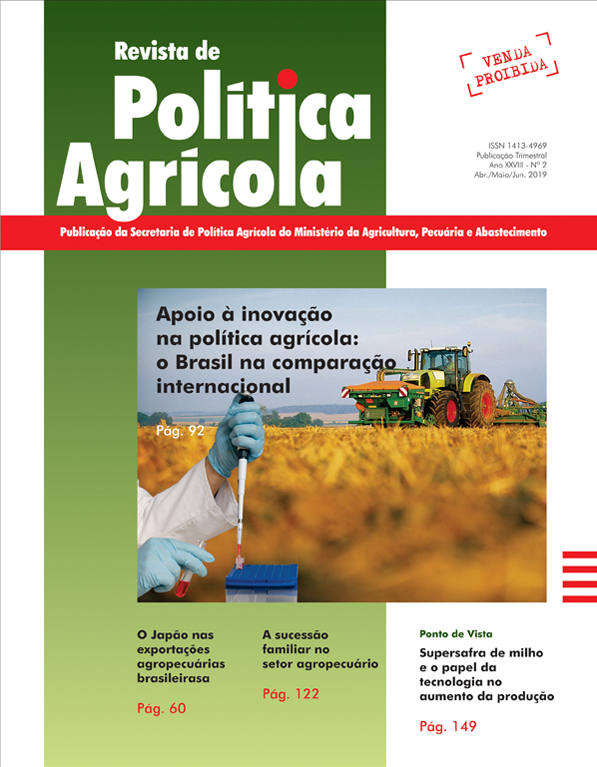Productivity gains and production factors savings in Brazilian coffee sector
Keywords:
land-saving effect, labor-saving effect, shift-shareAbstract
Coffee production has historical importance in Brazil contributing to the generation of foreign exchange and jobs. Although it is an already traditional culture in the country, its productive dynamics remains in transformation. The aim of this paper was to analyze the dynamic of the coffee production between 2004 and 2015 and its relation with the land and labor use. Specifically, we analyzed the regional specificities of the states of Minas Gerais, Espírito Santo, São Paulo, Bahia, Paraná, and Rondônia. Methodologically, a shift-share approach was applied in order to quantify the effects of area, productivity, and price evolution. We found that the growth of the value of Brazilian coffee roduction in the analyzed period was due almost exclusively to productivity gains, with the area effect acting negatively. Although there is a certain heterogeneity of the results of the Brazilian states analyzed, in general, the value evolution pattern was similar, with the state of Bahia being the only exception regarding the area effect. The gains in land productivity and labor productivity led to an expressive saving of these roductive factors, of 769 thousand hectares and 409 thousand workers in Brazil as a whole in the analyzed period. This result provides evidence of the effectiveness of coordinated efforts between producers and public and private institutions promoting policies focused on productivity gains.Downloads
Published
2019-10-07
How to Cite
Moreira, P. C., Moreira, G. C., Castro, N. R., & da Silva, R. P. (2019). Productivity gains and production factors savings in Brazilian coffee sector. Revista De Política Agrícola, 28(2), 6. Retrieved from https://rpa.sede.embrapa.br/RPA/article/view/1368
Issue
Section
Artigos Científicos


